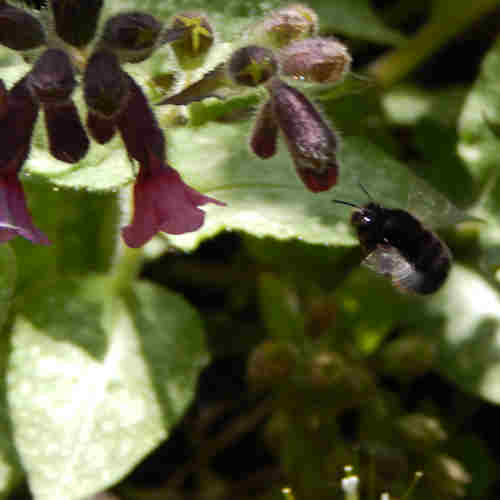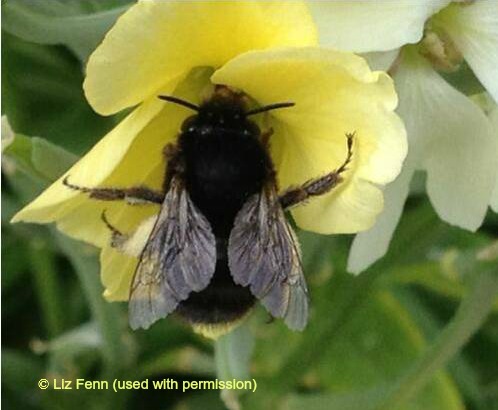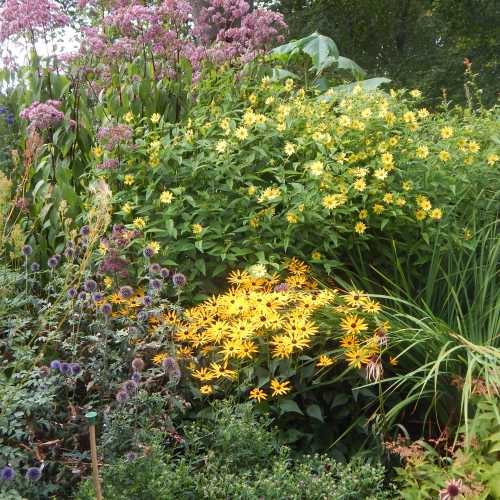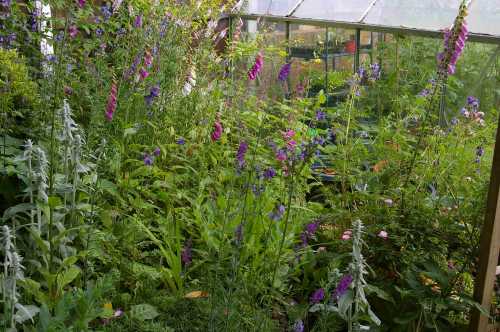Pulmonaria Officinalis -
A Wonderful Early Flowering Plant For Bees
Pulmonaria officinalis is an excellent early-flowering nectar source for bees, and a perennial plant from the Boraginaceae family.
It is semi-evergreen, with whitish green spots on the leaves, and pinkish-blue flowers from early spring.
It is also known as Jerusalem Sage or Common Lungwort. It grows to about 30cms in height, so it’s best to have a patch at the front of the border
Pulmonaria: An early source of food for bees in spring
I have a good sized patch in my back garden, started from only a couple of small, straggly plants given to me by a neighbour. They thrived, and now it is a plant I recommend for sharing with your neighbours too, because it’s a really helpful plant to bees when there is little else available for them to forage upon.
It’s loved by a variety of bumble bees in particular, but also hairy-footed flower bees.
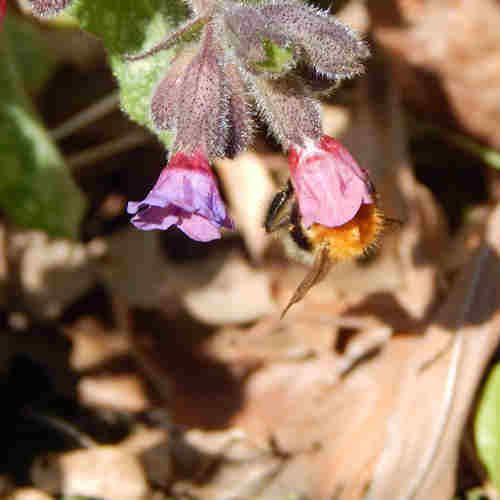
During early spring, foraging can be challenging for bees, largely due to the variability of the weather, and because in general, gardeners tend to have fewer flowers in bloom. Bulbs, such as crocus, are welcome for some species, but variety is also very important.
Pulmonaria is definitely in my top 10 of favourite bee-plants, simply because it helps provide food for a variety of bees.
Other early-flowering plants and shrubs I favour for bees include rhibes, dandelions, pussy willow, rosemary, heathers and mahonia.
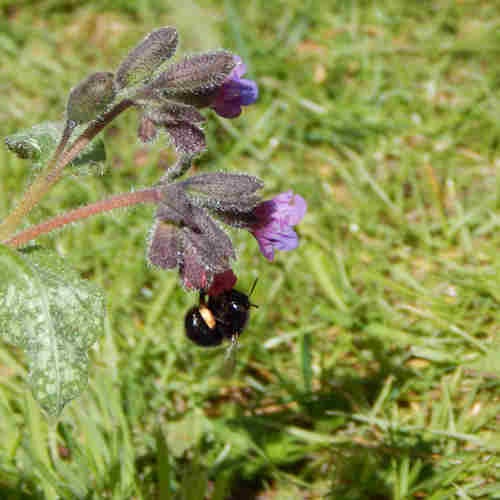
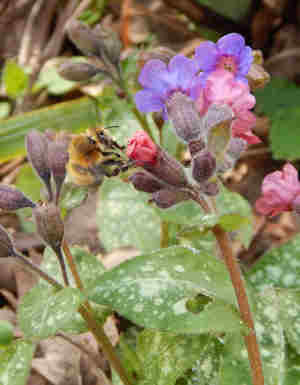 Hairy footed flower bee (male) foraging on Pulmonaria Officinalis
Hairy footed flower bee (male) foraging on Pulmonaria Officinalis